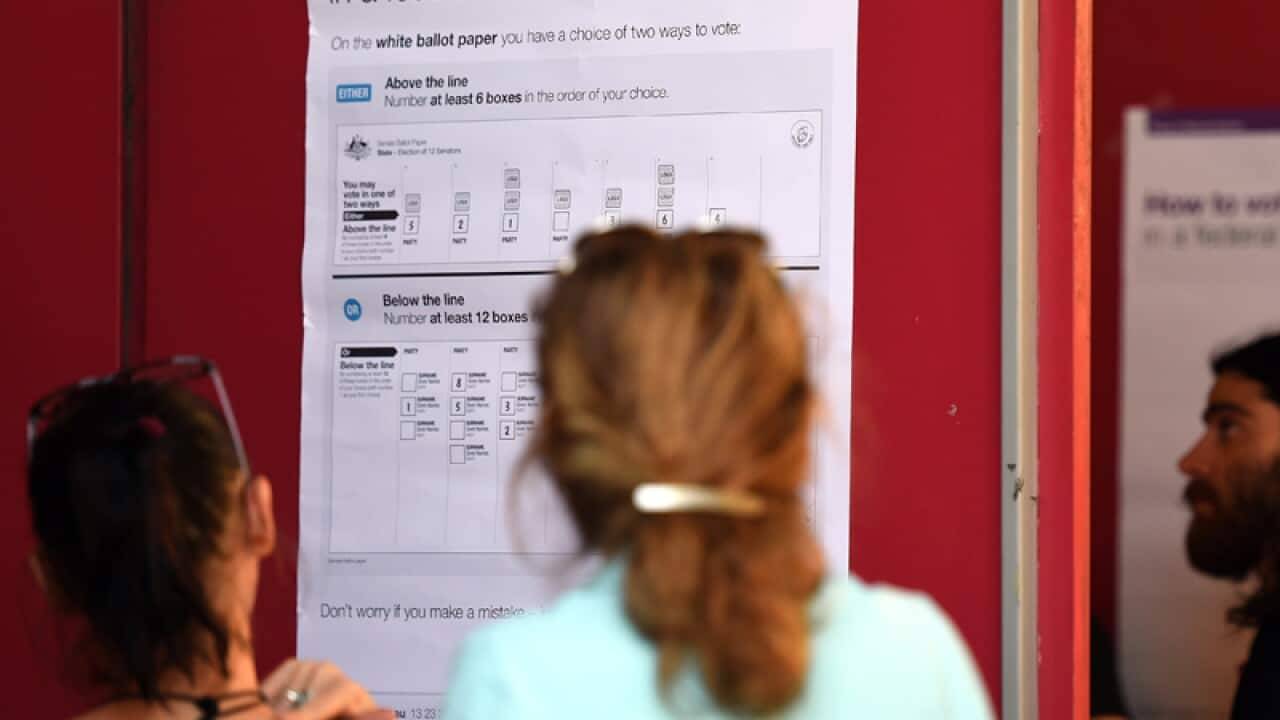Satisfaction with democracy is at its lowest recorded level in Australia since the 1970s and is a "wake-up call" following the election of Donald Trump.
Four in 10 people surveyed for the Australian National University's latest election study following July's federal poll are not satisfied with democracy, the lowest level since the post-Whitlam dismissal period.
Trust in government is at its lowest since first measured in 1969, with only 26 per cent believing government can be trusted and just 30 per cent of Australians taking a good deal of interest in the latest campaign.
Satisfaction with democracy peaked in 2007, but now Australia ranks in the middle of OECD countries behind the likes of New Zealand, Germany and France.
"What it looks to me like is that you're seeing the stirrings among the public that has happened in the United States with the election of Trump (and) Brexit in Britain," lead researcher Professor Ian McAllister said in Canberra on Tuesday.
"It's not a crisis of democracy but what you're seeing is the start of something, which has happened overseas and it's coming here.
"I would have thought this is a wake-up call for political parties."
Prof McAllister believes a general dissatisfaction with career politicians who renege on commitments and giving high-profile postings to ex-MPs fosters distrust.
"We don't have rampant corruption in the political system ... but we've got a lot of this grey area," he said, referring to politicians' perks.
Fellow researcher Jill Sheppard believes the major parties have rested on the laurels of compulsory voting, especially in their use of social media.
"The chickens are coming home to roost," she said.
The study confirmed health and Medicare were the top issues for voters in 2016, followed by management of the economy and education.
Immigration and asylum seeker policies were more important than at any time since the 2001 so-called Tampa election, with 56 per cent backing offshore processing.
Prime Minister Malcolm Turnbull was more favourable in the eyes of voters than Bill Shorten, but both failed to get halfway in the survey's 10-point scale of how much people like the leaders.
No prime minister since Kevin Rudd in the 2007 election has enjoyed a high level of popularity.
Mr Turnbull ranked highly in terms of being intelligent and knowledgeable, but was behind the opposition leader on a score of compassion.
The study also shows Richard Di Natale is a more popular Greens leader than his predecessor Christine Milne, but Barnaby Joyce is more disliked than former Nationals leader Warren Truss.
There was strong support recorded for indigenous recognition in the constitution (79 per cent), same-sex marriage (70 per cent) and medically-assisted euthanasia (77 per cent).
The latest survey was conducted over three months after the July 2 election, which returned Mr Turnbull's coalition government with a mmuch reduced majority.

